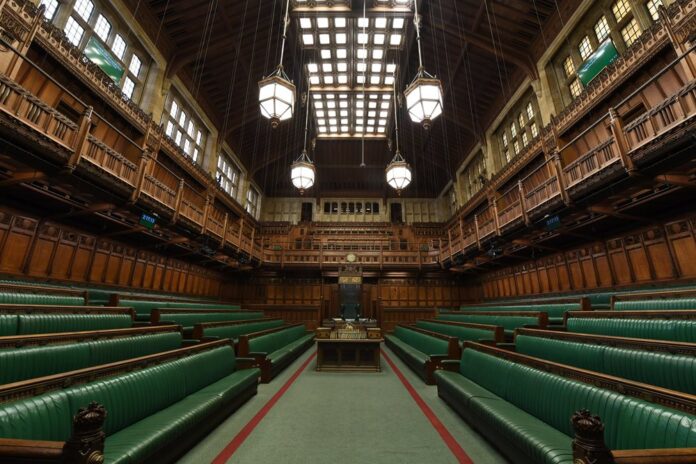A recent investigation conducted by BBC Newsnight has shed light on an ongoing “predatory culture” within the House of Commons, where inappropriate flirting and sexual misconduct are still prevalent, according to six members of staff. The individuals interviewed highlighted that abuses of power by male MPs and senior staffers continue to be common, and they expressed dissatisfaction with the slow progress of the new complaints process.
Disturbing incidents were shared by the staff members, including one woman who recounted being asked to sit on a male MP’s knee and being bombarded with unwanted text messages from another individual. Despite the introduction of a new complaints scheme, little change has been observed, with all the allegations made pertaining to the last two years.
Ellie Varley, a 25-year-old parliamentary aide to Tory MP Dehenna Davison, spoke out about her experiences and expressed her anger over the prevailing culture. She revealed that incidents often included inappropriate touching and flirting, with younger staff members being targeted by older MPs and staffers. Varley emphasized that this issue transcends party politics and affects individuals throughout the House of Commons.
According to the accounts provided, there is a prevailing sense among some MPs and senior staffers that they can act with impunity, leading to an intimidating atmosphere. The parliamentary staff also described instances where they felt uncertain whether friendly gestures were actually forms of unwanted touching or advances. Persistent and unwanted text messages were another form of harassment mentioned by the interviewees.
These concerns raise questions about the efficacy of the Independent Complaints and Grievance Scheme (ICGS), which was established in 2018 to address inappropriate behavior within Parliament. While the ICGS was meant to provide an avenue for reporting and investigating complaints, one senior official dismissed it as “useless” and claimed that the scheme had not made a difference in tackling the predatory culture.
Criticism has been directed at the length of time taken for investigations within the ICGS. The annual report of the scheme indicated that cases involving MPs as respondents took an average of 262 days to complete, while cases involving parliamentary staff took an average of 186 days, and MPs’ staff cases averaged 133 days.
In response to the allegations, a House of Commons spokesman emphasized that the institution takes complaints extremely seriously and reiterated its commitment to achieving lasting cultural change. They acknowledged that bullying, harassment, and sexual misconduct have no place in Parliament. However, the staff members, including Ellie Varley, expressed disappointment that so little has changed and highlighted the lack of faith and trust in the reporting process.
The testimonies shared by the interviewed staff members reflect a systemic problem that requires significant cultural transformation. Holding individuals accountable for their actions, providing a safe environment for all, and restoring faith in the reporting process are crucial steps toward eradicating the predatory culture within the House of Commons. Until these measures are implemented effectively, the staff members believe that the current situation is unlikely to improve, and victims will continue to face significant challenges in coming forward with their experiences.





